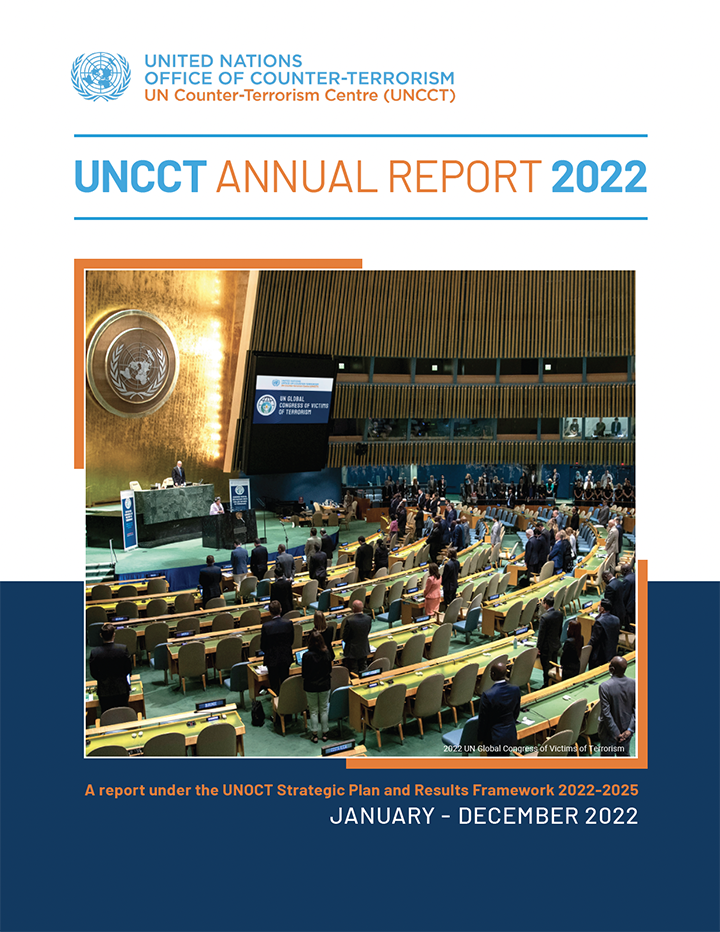Countering the financing of terrorism
UNOCT-UNCCT are committed to helping all interested Member States increase their national and regional capacities to suppress the financing of terrorism.
New avenues to address terrorist financing
National obligations to counter terrorist financing are set out in the existing international framework. With the intensification of the terrorist threat over the recent years and the concurrent evolution of terrorist financing typologies, the UN Security Council has adopted additional resolutions, often under Chapter VII, to address new avenues of terrorist financing, including by targeting the nexus between terrorists and organized crime groups and tackling fundraising through kidnapping for ransom. In Resolution 2462 (2019), the Security Council expressed concern at the flow of funds to terrorists and the need to suppress all forms of terrorist financing.
In order to be effective, efforts to counter the financing of terrorism need to rely more on financial intelligence sharing between countries and enhanced coordination between the public and private sector. In addition, public sector financial regulators and private sector regulated and semi-regulated entities, including banks, often carry information that could benefit the other if shared through better and timely channels. In order to be more effective, targeted financial sanctions and other Financial Action Task Force (FATF) mandatory measures need to be buttressed with risk assessment and typology identification, enhanced intelligence sharing and better cooperation between the public and private sectors. Full adherence to international human rights standards and due process issues is also required.
The Global Programme on Detecting, Preventing and Countering the Financing of Terrorism (CFT Programme) was launched in 2020 to step up UNOCT/UNCCT efforts in this area as mandated by the General Assembly’s Global Counter-Terrorism Strategy and its review resolutions, and the Security Council, including through resolutions 1373 (2001) and 2462 (2019).
Under this global programme, UNOCT-UNCCT provides assistance to Member States in a sequential, coordinated and results-oriented manner on a variety of CFT topics.
Programme mandate
The UN Security Council has addressed countering the financing of terrorism on various occasion. These include, among others, Resolution 2133 (2014) on kidnapping and hostage-taking by terrorists and Resolution 2178 (2014) on suppressing the flow of Foreign Terrorist Fighters (FTFs), financing and other support to terrorist groups in Iraq and Syria, Resolution 2195 (2014) on preventing terrorists from benefiting from transnational organized crime, Resolution 2199 (2015) aiming to prevent terrorist groups in Iraq and Syria from benefiting from trade in oil, antiquities and hostages, and from receiving donations.
In UN Security Council Resolution 2253 (2015), the Council expanded and strengthened its Al-Qaida sanctions framework to include a focus on ISIL, and outlined efforts to dismantle its funding and support channels. The evolution of the threat posed by ISIL is additionally reflected in Resolution 2331 (2016) which aims to disrupt terrorist funding derived from acts of sexual and gender-based violence, including when associated to trafficking in persons, Resolution 2347 (2017) on preventing and countering the illicit trade and trafficking in cultural property originating from a context of armed conflict, notably from terrorist groups, including by prohibiting cross-border trade in such illicit items.
Lastly, in the landmark resolution 2462 (2019), Member States were called on the urgency to suppress Terrorism Financing. The resolution constituted a vital step forward in the international community’s efforts against Terrorism Financing by consolidating existing obligations in a single document, expanding the focus to include key emerging issues, addressing critical concerns over the potentially negative impact of counterterrorism measures on impartial and much needed humanitarian programming, and emphasizing the importance of strengthening international cooperation to ensure the exchange of relevant financial intelligence.
The importance of countering terrorism financing is also emphasised in the United Nations Global Counter-Terrorism Strategy and in its biennial review resolutions, which encourages UN entities to continue to assist Member States upon their request, to fully implement their respective international obligations to combat the financing of terrorism.
Programme activities
UNCCT organizes capacity-building workshops for interested Member States on a variety of topics to enhance the capacity of national authorities to improve their work on suppressing the financing of terrorism.
UNCCT closely coordinates its work with CTED and UNODC in the delivery of capacity-building assistance on CFT.
The use of technology is also a critical component in international efforts to combat terrorist financing. For long-term effects, the CFT Programme is developing the “goFintel” software in collaboration with the Office of Information and Communication Technology (OICT) in order to assist requesting Member States in their efforts to cooperate and appropriately target financial transactions that could potentially be utilized to finance terrorism.
Programme’s impact
In 2018 and 2019, UNCCT efforts led to the adoption and implementation of a decree in Tunisia that allowed the country to designate individuals and entities connected to terrorism. In addition, UNCCT has also helped develop two Counter-Financing of Terrorism Regional Operational Plan for the Eastern and Southern Africa Anti-Money Laundering Group (ESAAMLG), both of which were successfully adopted by ESAAMLG jurisdictions.
Since mid-2018, UNCCT has delivered over thirty (30) capacity-building workshops on Countering the Financing of Terrorism, engaging almost two thousand (2,000) officials and stakeholders from over 30 nations. Beneficiaries of national and regional capacity-building support include Tajikistan, Mongolia, Sri Lanka, Bahrain, Bangladesh, Tunisia, Sudan and the eighteen (18) ESAAMLG member jurisdictions.
In addition to capacity-building, the CFT Programme also serves as a vital policy hub on terrorism financing, with CFT expert staff leading coordination on key initiatives. For example the UNOCT co-leads the GCTF initiative on Ensuring Implementation of Countering the Financing of Terrorism Measures While Safeguarding Civic Space.


